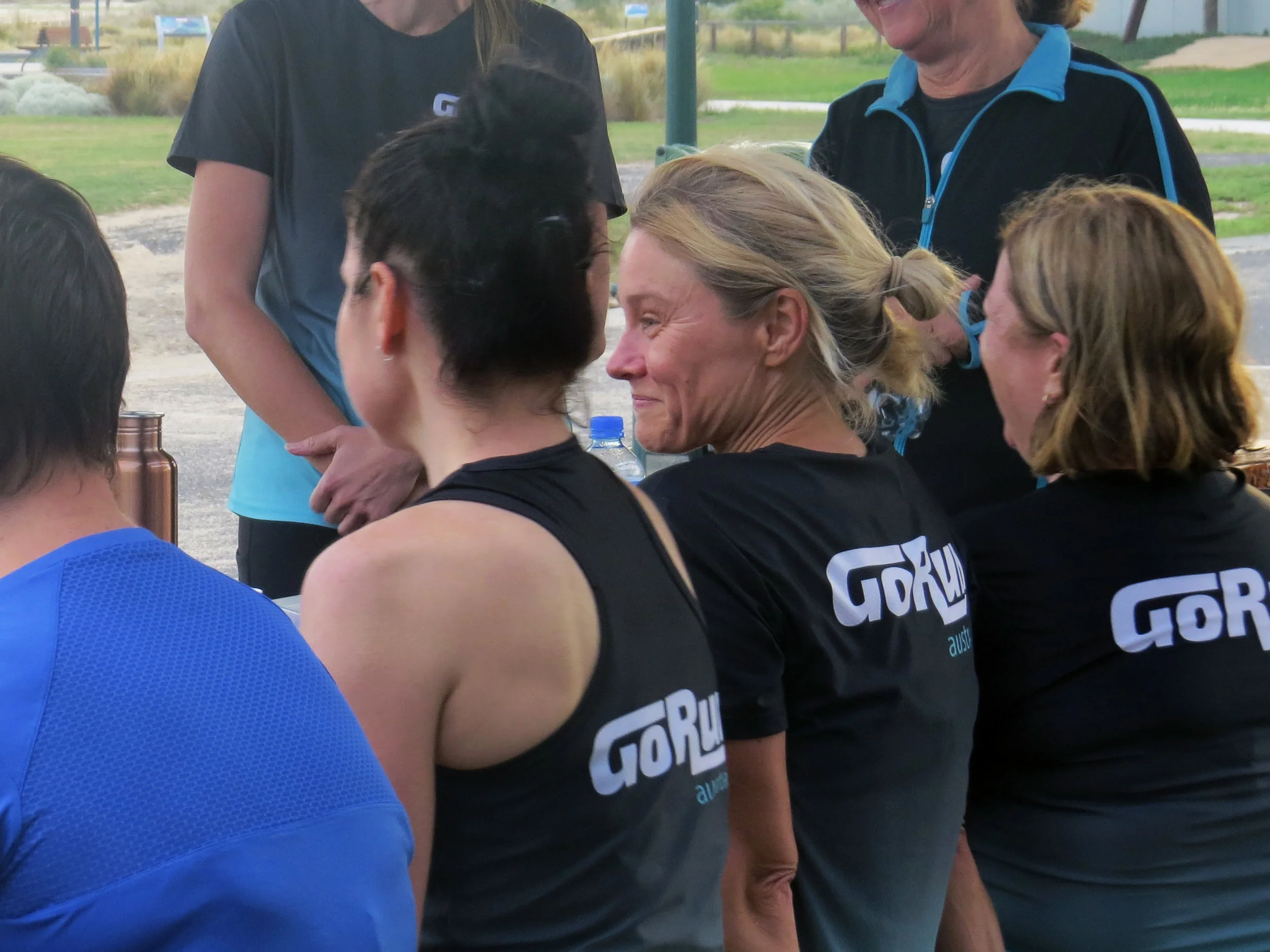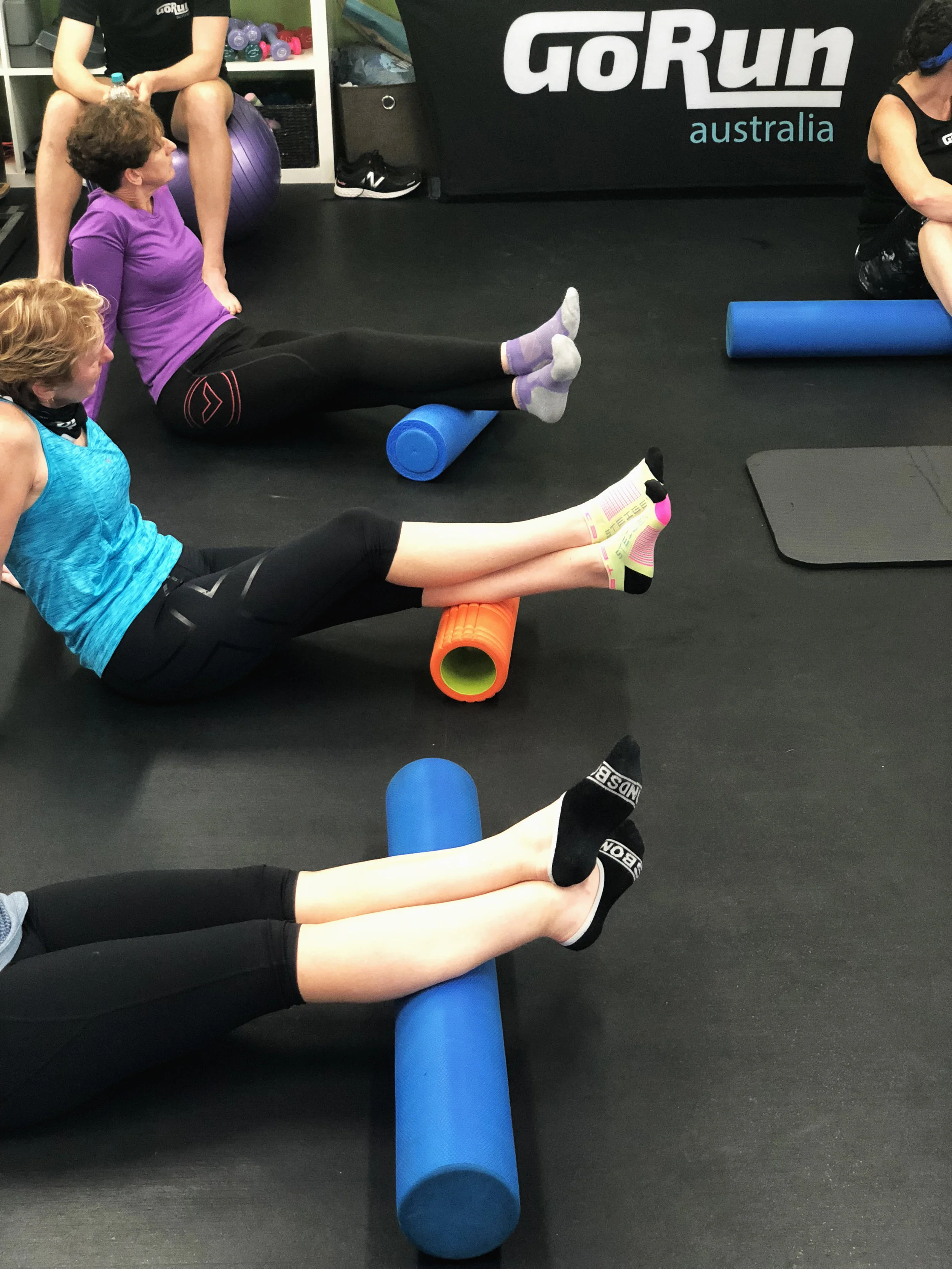Let’s be realistic about our running.
Well that escalated quickly…
I have started several blogs only to have the corona virus situation throw us another curve ball. So I started thinking about what can I write or contribute that has some use to our runners and friends, no matter what the situation? Then I spoke with my friend and fellow coach, Michael. Always a thinker and a man of interesting perspectives, we chatted about the need to be realistic about the situation that we find ourselves in, whatever that looks like.
How to ditch our expectations and get back to running
Getting back into running is fraught with emotional hurdles that we have to overcome. Statistically those first 3-4 weeks are the hardest and where we have the most to endure both physically and mentally. Just look at the numbers of people that 'fall off the bandwagon' after New Years. It kills me every year seeing the numbers of runners slowly declining as we get into February, March and April. Surely we can break through this!
Are we in danger of data overload?
Coach Kylie and I were lucky enough to get an invite to the recent Sports Analytics Conference in Melbourne, courtesy of the awesome team at Red Bull. Now...I’m definitely not a data nerd but I am intrigued by the use of technology in running, triathlon and other sports. To be honest, I am less intrigued by the technology itself, and more our use of it and the interpretations that come from it.
There were hundreds of people in attendance from all over the world and presenters from professional sports organisations in the USA, Spain, Sweden, UK, Australia and beyond. Some of the most recognisable names of clubs in sport were on the attendee lists and it was a great opportunity hear some of the themes and debates and potentially apply these to the everyday runner.
So, what did we learn?
The realities of getting back to running as a new mum.
Why CEO's find the time to run...
Have you seen those videos and pictures of Barack Obama playing basketball with friends and college players? I remember looking at them and thinking A. Wow! He’s actually pretty decent and B. How the **** does he find the time to do that?!?!? He’s the President of the United States!! Not only that, but every morning when in Washington, Obama hits the gym between 7:30 and 8:30, alternating cardio days and weights days.* Impressive, right?
This last couple of weeks, I have noticed so many people talking about how little time they have to run. It has brought back memories of a cringe-worthy conversation that I had with a CEO, when I lived in Belgium 6 years ago. I was chatting to the CEO of one of the biggest hospital trusts in England about her running......
Comparison is the devil...
Comparison is the devil. Well, maybe that's a bit extreme, but I rarely find comparisons helpful in my line of work.
When I raise the issue of comparison with people you often see wry smiles and subtle nodding of heads. Everybody does it but yet most people feel worse because of it. The problem is that its addictive. We can’t help ourselves!
Forget perfection, try evolution.
What does the ‘perfect’ runner look like? I hear this question being discussed every so often in magazines, online forums or occasionally over coffee after our Saturday morning 5km parkrun. Particularly if you are relatively new to running, you might be interested and might even be in awe of those runners who seem to have the perfect build, legs, speed,or effortless look to them as they glide around the track or along the bike path. It all adds to the slight insecurities we might have about not being a ‘real runner.’
Too Far, Too Fast, Too Often.
We’ve all been there as beginners, even some of the fastest runners you know probably began with those awkward, embarrassing first runs / walks and suffered from the same things that we do, but even with that in mind, I did not expect people of all experiences, shapes, sizes, abilities, ages to contribute to this debate. I don’t know what I expected to be honest, but certainly not the detail and emotive comment that I got back. The responses certainly gave me a renewed want to try and help people by addressing these issues in my coaching.
One of the main issues that came through in the responses was that of wanting to go longer, harder and faster every time you run.
5 things that a first time marathoner needs to know.
6 Tips for Great Recovery
One of the areas that worries us most as runners is injury. In particular, how is your body going to deal with building for events like the marathon, as well as the demands of every day life? Having teamed up with the Physios at Port Melbourne Physio and Pilates, we took the liberty of asking them their advice on RECOVERY in the hope that their words of wisdom would keep us injury free and running at our best in the longer term. As health professionals who regularly treat recreational runners with injuries and as runners themselves, who better to chat with about getting our recovery right, than our physio friends?!
A Year of endurance events helps Meagan ‘climb out of dark hole’
After several epic life challenges, Meagan set herself an inspiring goal of #8in18 – to compete in an event in every state and territory of Australia in 2018. Here she shares what she learnt from the challenge and the final event - Ironman Busselton, Western Australia - and how she’s been keeping busy this year.
The reason #8in18 came about was that I fell into a world of depression and then anxiety, following a relationship breakup, a divorce and a number of health issues. The only way I was going to climb out of that dark hole was by pulling myself out of it ... so I set the goal!!
The 80/20 of Running
Even in my few short years coaching recreational runners to achieve their goals, you can start to pick out a few key themes and messages that are likely to stand the test of time and outlast whatever the latest, hilarious marketing trends of the week are.
One of those key messages is the importance of the mental side running, as opposed to the physical side.
Why do we feel guilty for running?
Many conversations. One common theme: Runners Guilt.
Yep, it’s a real thing. People of all shapes and sizes feel guilty for running. Whether you are a busy executive, a shift worker, a student, a stay at home parent or all of the above, runners guilt can stop you getting your running off the ground or keeping up your training routine.
“Why do I feel so guilty when I go for a run?”
We Fall to the Level of our Training
An old coach of mine had a very simple saying, "finish at the finish."
Seems simple enough to do, right?
In a race or event, this absolutely makes sense but he also used to say this during almost every training session. Whether it was an easy recovery run or a hard interval session, 'finish at the finish' still rings true. Just like you can’t imagine stopping your race 100 metres before the finish line, nor should you imagine this during training. We are creatures of habit and by finishing actually at the finish and not before, we are looking to create a positive habit that is reinforced in each and every session, not just when the coach is looking.















